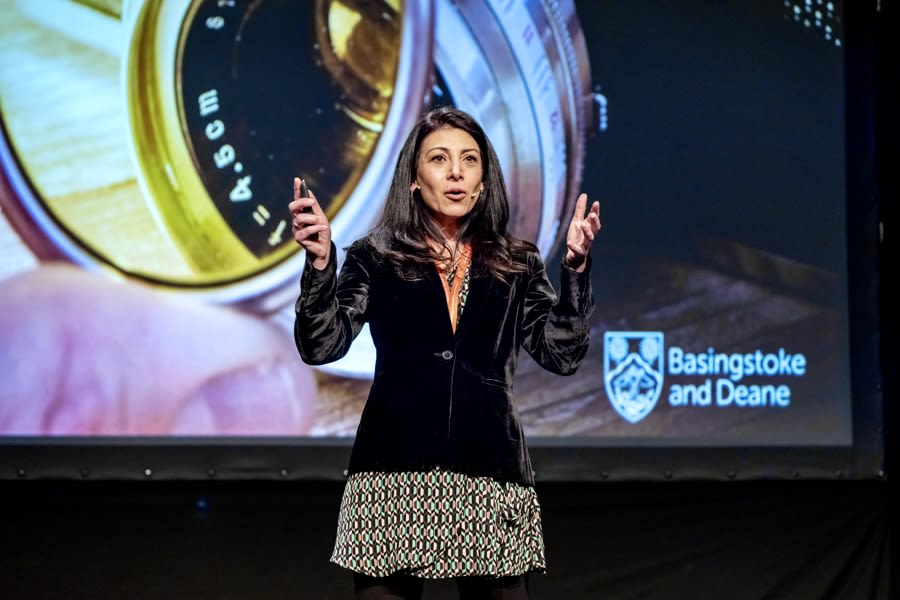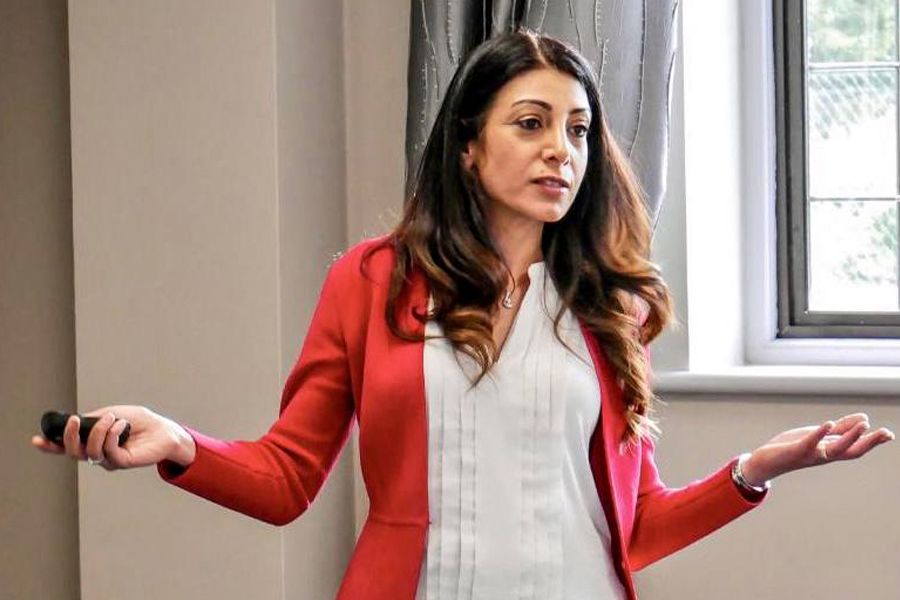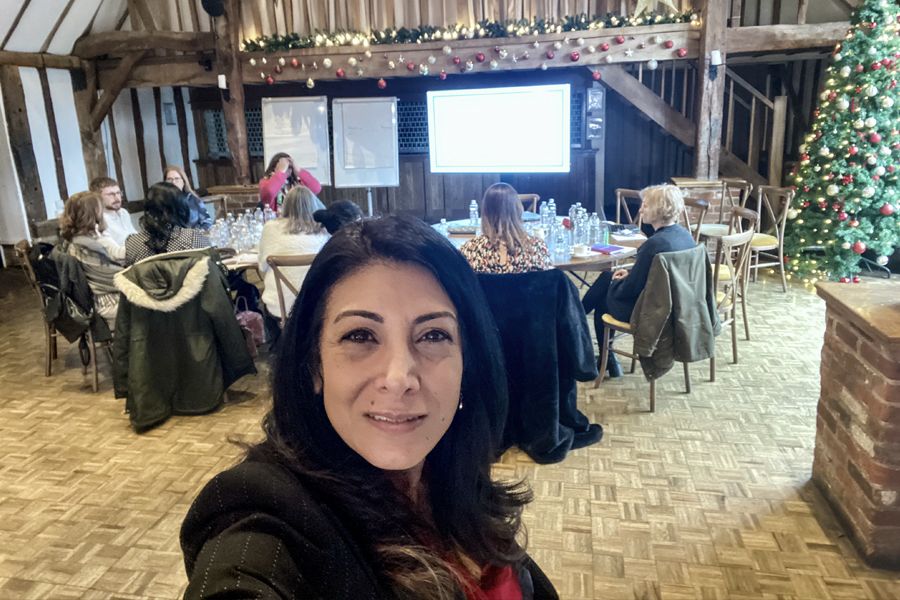Why leadership matters: radiographer turned life coach Vafa Taleban
Vafa Taleban spent 25 years as a medical imaging professional before exploring new pastures as the founder of a personal development coaching business. Here, she explains why leadership is a key skill for radiographers
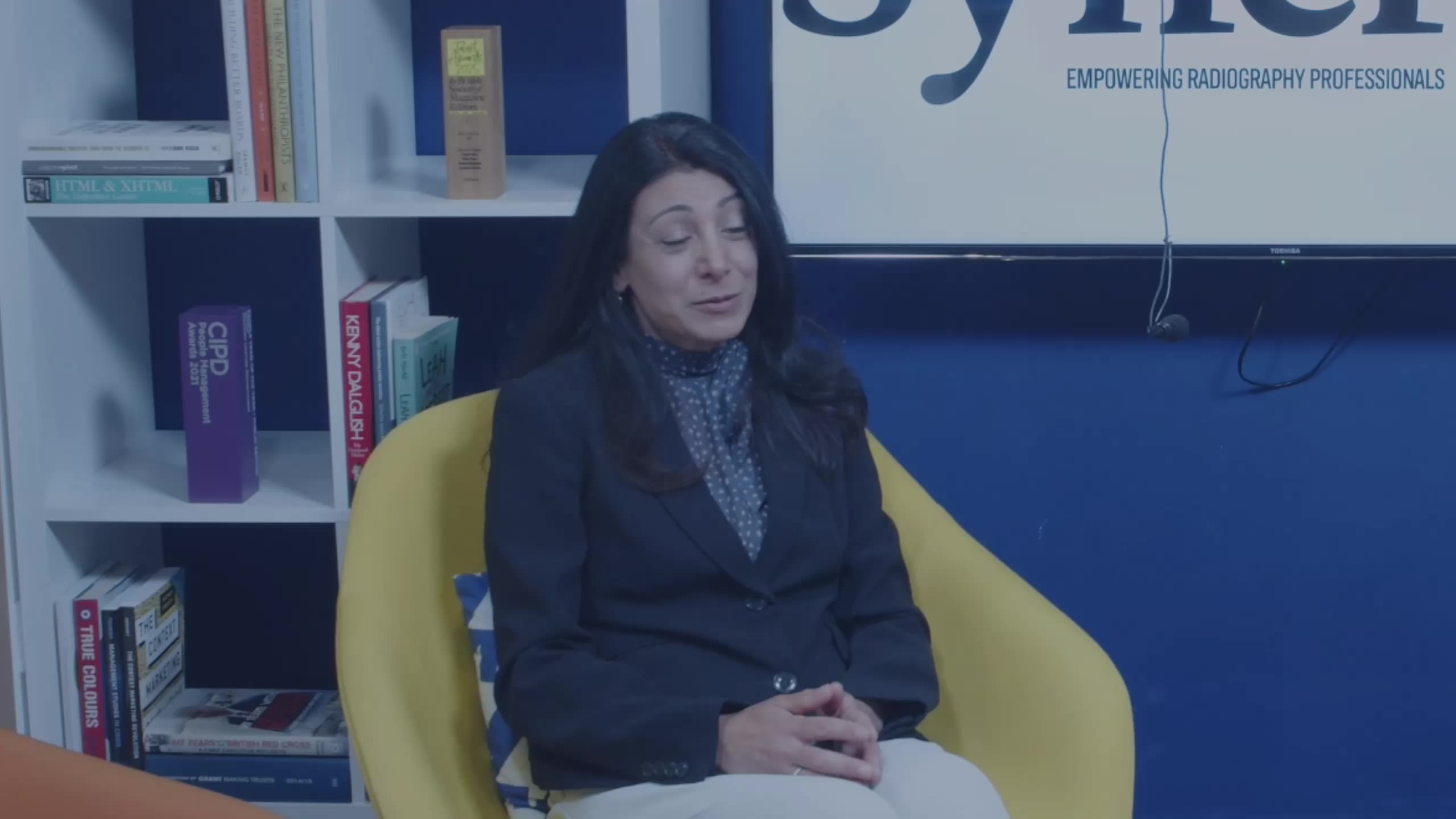
Continuing professional development is a vital component of every radiographer’s journey, ensuring they deliver the best possible care for patients. But what about the skills that aren’t covered under the continuing professional development process – skills such as leadership, public speaking or even dealing with the stress of ever-growing workloads?
A personal development enthusiast, Vafa invested heavily in her own growth and development throughout her 25 year career as a radiographer. She self funded for a coaching diploma qualification and was being invited to coach, speak and take part in panel discussions long before she chose to put all her time and energy in developing her purpose driven, life-style business. As much as she loved working alongside her team, she began to wonder if she could do more good by supporting imaging professionals as an independent coach and trainer, not just in growing their confidence and resilience, but in becoming stronger leaders, in understanding themselves and in tackling everyday challenges from a different perspective.
In 2019, Vafa took a leap of faith by moving out of radiography and starting her own business: Personal Revolution. “The strength of my work lies in having the lived experience of the challenges my imaging colleagues face daily, in creating content that addresses the gaps I noticed during my 25 years as an imaging professional and, most importantly, in the way I facilitate these skills building workshops,” she explains.
Synergy invited Vafa to discuss just how these skills can help radiographers, and what they can do to get started on their personal development journey.
Taking the plunge
A career in diagnostic radiography captured Vafa’s interest because of the remarkable diversity within the field. She was also deeply motivated by a genuine care for people and a strong desire to support both patients and colleagues through her work, she said.
After graduating from Cardiff University, her career started in the leafy market town of Abergavenny, where she held a locum position for three months. From there, she moved to Frenchay Hospital in Bristol- but it was only after her next move, to Basingstoke and North Hampshire Hospital in the South East, that she truly felt she had found her hom. Soon after, she was seconded to work as an MRI radiographer at Lodestone Patient Care. There, she found herself amongst the first cohort of people to acquire a Clinical MRI Reporting qualification from Canterbury University.
Her secondment came to an end as NPfIT (The National Programme For IT) was being rolled out in 2006. She was invited to join the PACS team to provide technical support and training to teams within the hospital. She soon became the trusted link between the PACS users who were experiencing challenges, the local IT team and the external PACS providers.
While there, Vafa found that the skills she was developing to help the workforce transition through change were essential skills in the modern landscape. Preparing her colleagues for digital transformation, managing their expectations during the transition period and mentoring students were her strong suits.
With these skills in hand, she explained, her passion for personal development became hard to ignore. While glad her work was having an impact as she was coaching, speaking at events and participating in panel discussions outside of working hours, she realised that she didn’t have the internal influence to implement real meaningful change. “That’s what led me to leave,” she says. “I took a leap of faith and I started a business. Just a few months after that, Covid happened. I was an ‘in-person’ networker, going to events, doing lots of speaking and building a client base and all of a sudden, I found myself in an interesting place, where I had zero digital footprint, and a new business to develop! To say that my resilience was tested for the next three years is an understatement, but I believed in what I’d created and I knew I could make a success of it.”
'It’s about understanding radiographers’ own patterns of behaviour'
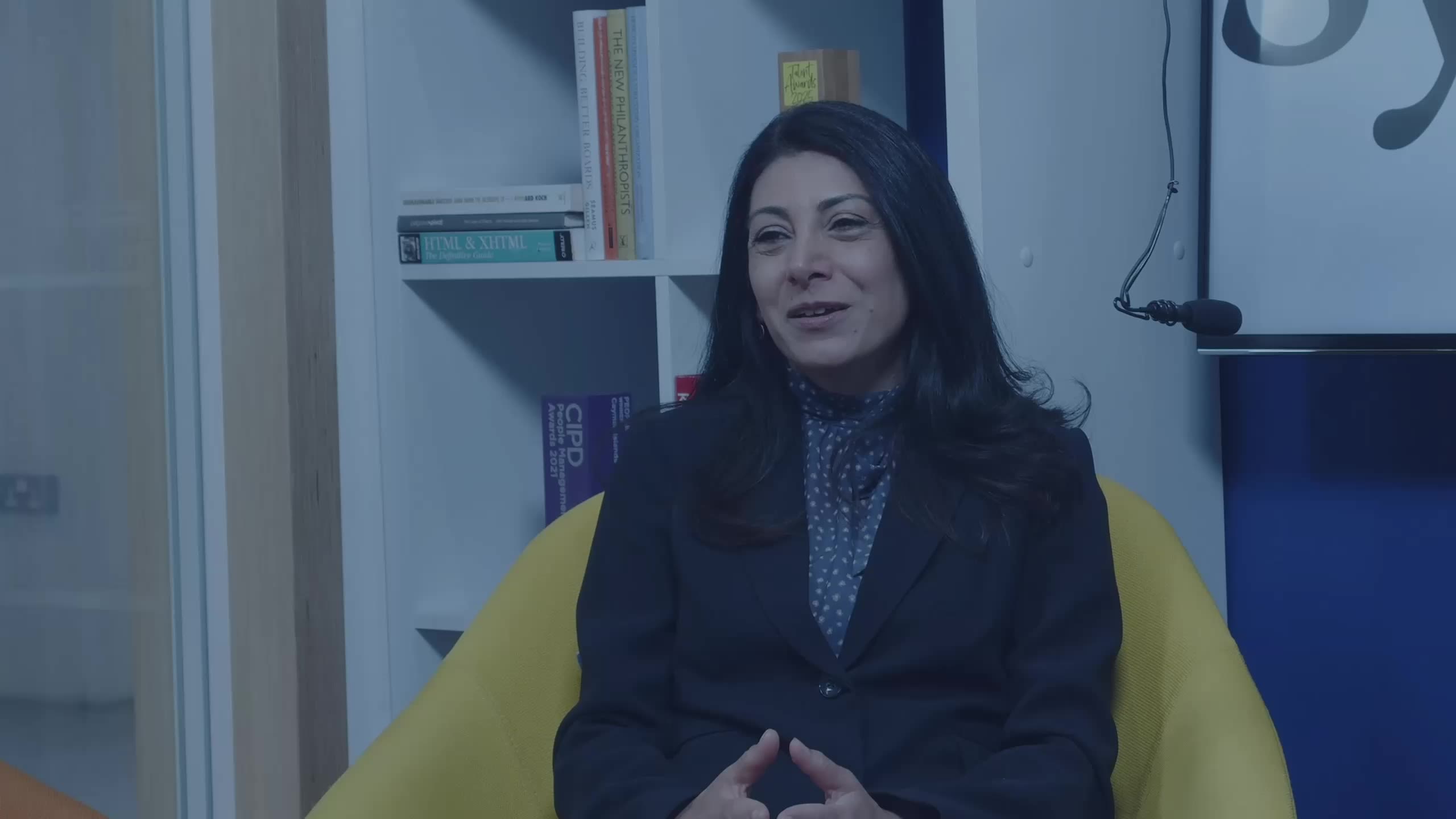
Building soft skills
Vafa founded her business in late 2019 as part of a desire to find a new way to provide care to people, helping them achieve their goals and dreams. Whether working on a 1:1 basis or in group settings, the main focus is helping the clients develop the awareness of how they make decisions and challenge their perspectives. “We can’t change the challenges facing us every day, but we can change our perception of those challenges. That’s what I help them do,” she explains.
“I design bespoke leadership development and skills-building programmes that empower individuals and teams to transform how they live and work for the better. It’s still an alien concept and not available to many people.”
Healthcare professionals are wired to be reactive: which is necessary when dealing with medical emergencies. But in her view, where some of these workforce issues can be alleviated is with more proactive, collaborative thinking. Working together to understand the root cause of problems, why current approaches aren’t working and what new perspectives are needed to tackle it are vital to any radiographer, not to mention healthcare professionals more broadly.
The sheer volume of work facing many radiographers can be immensely discouraging. To start, focusing on emotional wellbeing can be vital.
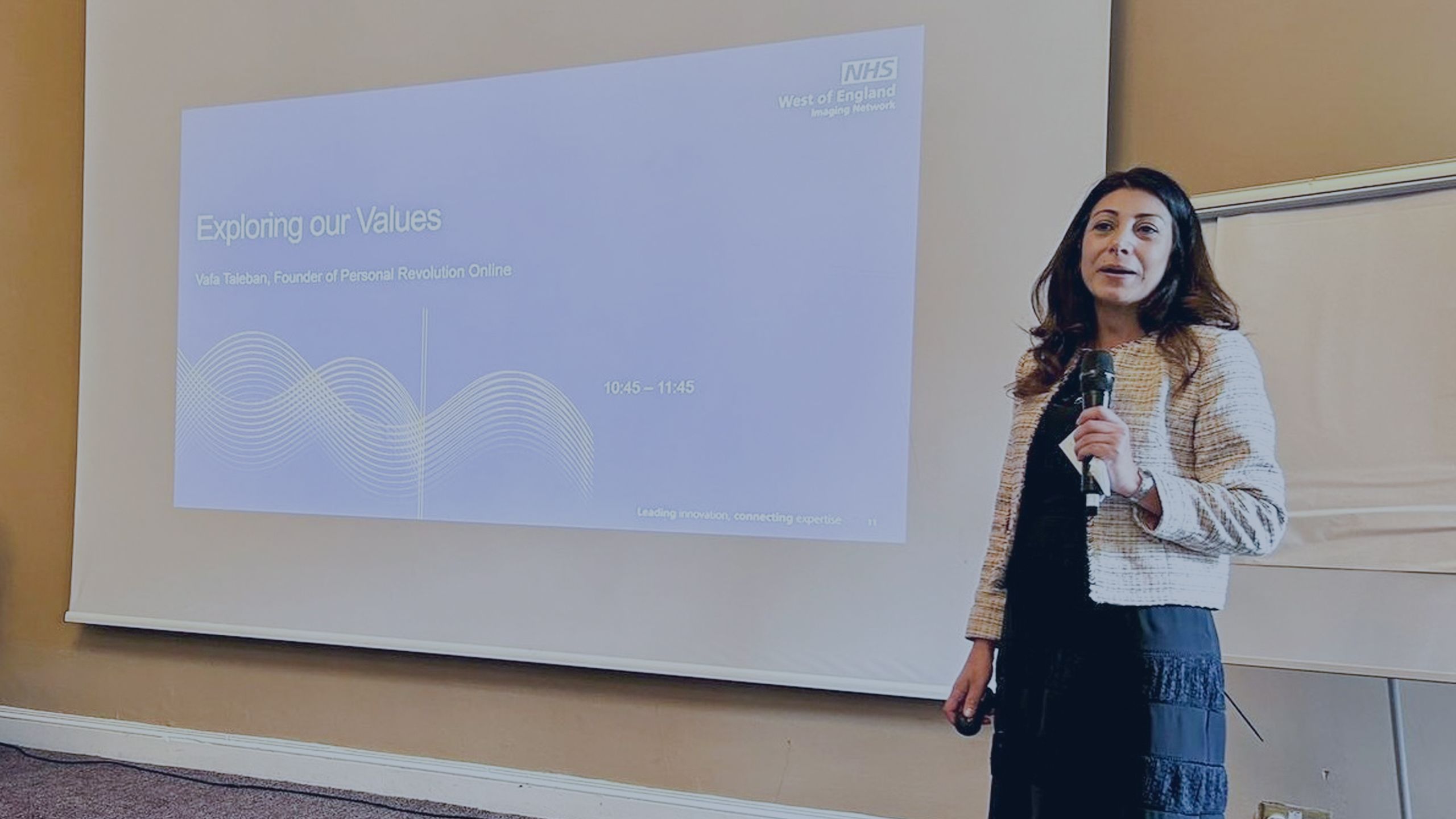
“It’s about understanding their [radiographers’] own patterns of behaviour,” she says. “Having an awareness of our beliefs and unconscious biases, how we make decisions, how we jump into habitual actions and how we can choose differently when we see the world through a different lens.”
Developing these life skills is vital. Ensuring they are accessible to all healthcare professionals, not just those in senior leadership deserves serious consideration. “The most important time to build these soft skills is in the transition from healthcare professional Band 6 to Band 7,” she says. “I feel very strongly about being the voice for the people who are voiceless at the moment, until they get their voice.”
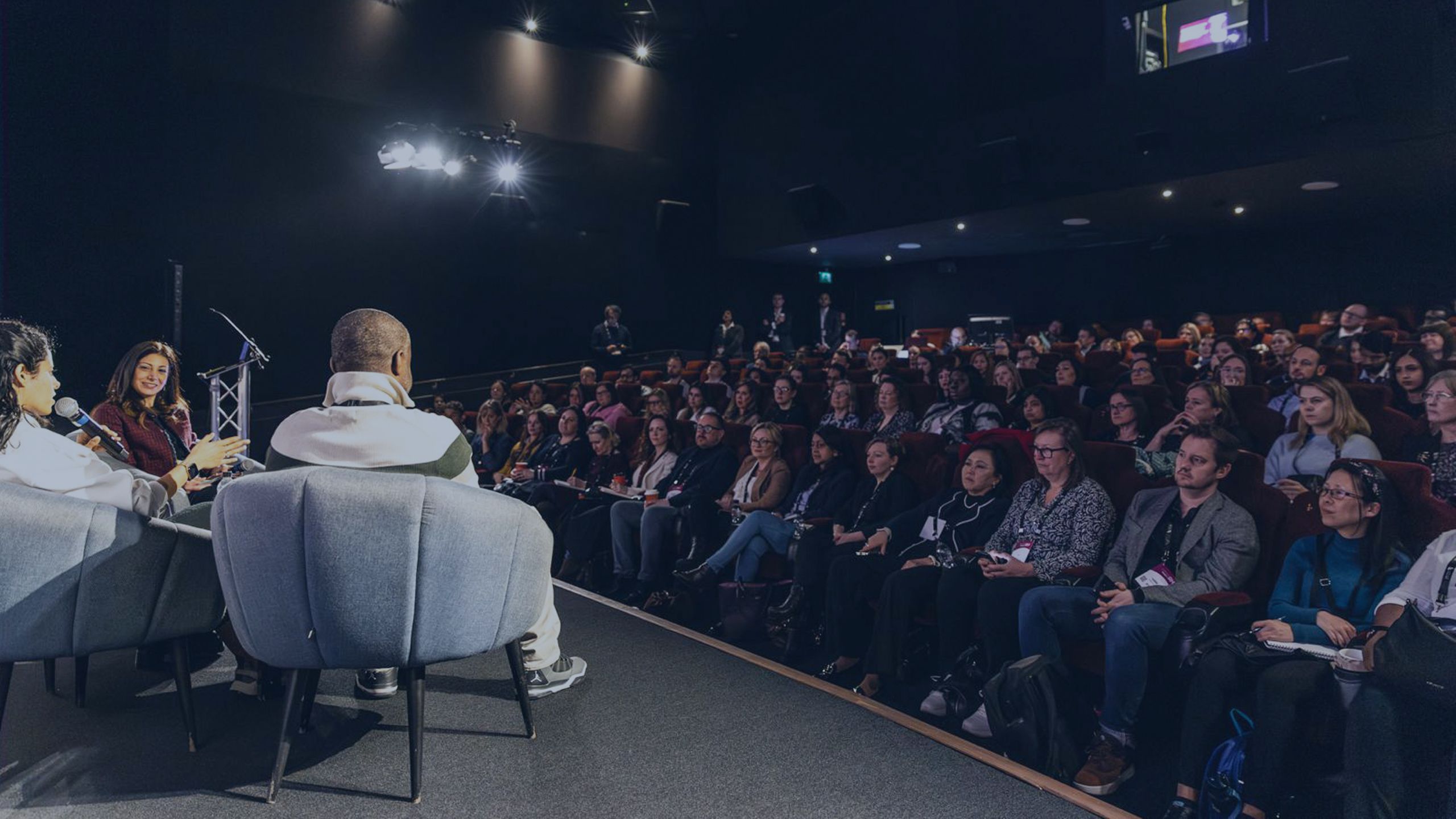
'When employee wellbeing is ignored, neglected and forgotten about, the duty of care is not met'
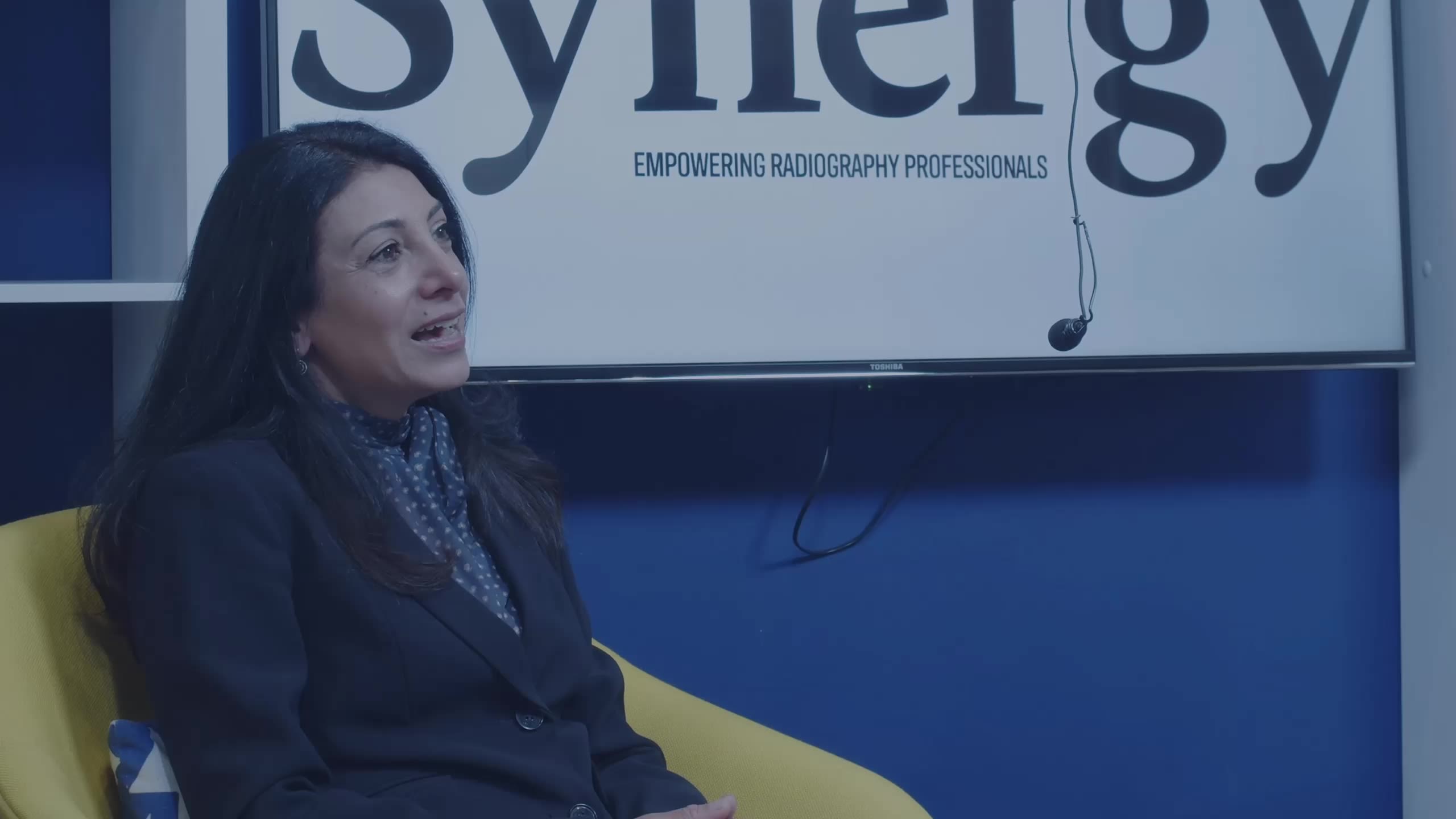
People who care
When working with her colleagues in imaging, she says, there is an extra level of familiarity and emotional investment. “I understand their challenges, I understand the limitations and I understand that we are now delivering really complex services, all while teams are working from silos,” she continues. “Workloads are huge – what we want to do is help them build these real, connected communities to create capabilities to navigate the everyday challenges.”
While the majority of training for imaging service providers focuses on clinical skills, Vafa’s efforts focus on the importance of skill-building workshops to support them in becoming more resilient. “We can’t change the reality of the workplace, but we can help them build this resilience,” she explains. “We can help them navigate the constant, multiple conflicting realities they’re facing. We can help them become better leaders, rather than just administrative managers.”
Tackling the workload in front of them, while also making sure they take care of their team, is one such conflicting reality facing radiographers. With such pressing, direct needs to address, it can be difficult to take a step back, think differently and make sense of the rules and regulations that are required. In Vafa’s experience, the question that really needs to be asked is: ‘How else can we do the work we’re doing, other than with the habits we’ve already built?’
Thinking outside the confines of job titles, short term thinking and inherited cultures is by no means an easy journey, but by remaining solution-focused and collaborating within these skill-building workshops, challenges can be better articulated and solutions found. “Creating psychological safety in these rooms is really important,” says Vafa. “It’s a phrase that’s thrown around constantly, but we need to understand how safety is created. One of my favourite authors said: ‘Safety is not the absence of fear. It is the presence of connection.’
“That’s what we work on. We create deep human connections right from the start. When there is no connection, people disengage, they retreat, they go silent. That’s when problems build up. That’s when trust erodes. When employee wellbeing is ignored, neglected and forgotten about, the duty of care is not met.”
Creating connected cultures, Vafa adds, needs leadership commitment. Service providers and upper leadership must commit to investing in people’s capabilities. “People need to be connected to themselves, to each other, to their leaders, to a shared sense of purpose. If we can create this shared sense of purpose, where people get clarity of direction, they get focused and, with that, they find motivation for action. The problems haven’t changed; it’s just their perspective that changes.
“It’s about creating that awareness of self so that you can understand your own patterns and your preferences better, and then you’ll get curious about everyone else’s. And that’s how you can actually connect with people better.”
Finding that connection can be difficult for people from any line of work, but particularly for those working in healthcare. Fears around radiography being the ‘invisible profession’ mean that staff can struggle to see value in their work and in themselves. “That’s why I love working with people from the NHS,” Vafa continues. “They are truly amazing. They care. That is the golden thread I’ve noticed, right from the time when I was working inside the NHS to where I am now. I have the privilege of working with people who really care. My heart is with them. I just want to make life easy for them.”
Find out more about Personal Revolution
Personal Revolution provides coaching, leadership training and personal development training through a variety of programmes that focus on helping people develop clarity, courage and confidence in their personal and professional lives.
Find out more information online here.
Find out more about Vafa online on Facebook or LinkedIn.
More about leadership and the SoR
The SoR Leadership Mentoring Scheme is designed to support members who wish to move into senior leadership roles. Cohorts of mentees receive one-to-one mentoring from senior leaders within our profession. The scheme aims to equip mentees with leadership and management skills, increased personal and professional confidence and professional networking skills.
More information can be found online here.
Read more



